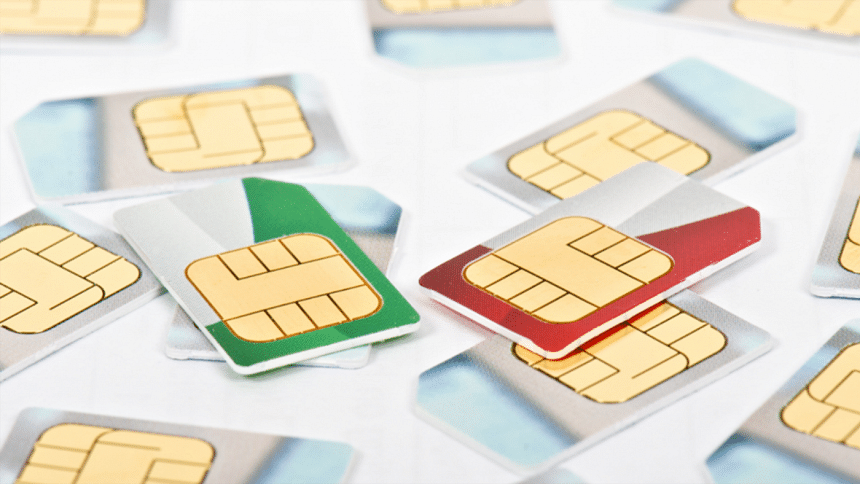Inactive SIM recycling period reduced to 12 months

Bangladesh Telecommunication Regulatory Commission (BTRC) has shortened the recycling period for inactive SIM cards from 18 months to 12 months in a bid to address a shortage of mobile numbers available in the country.
The new directive mandates 11 months of inactivity, followed by a 30-day notice period before operators can recycle the unused numbers.
Under the revised guidelines, mobile operators can extend the registration of inactive SIMs for two or three years if customers meet specific conditions.
These include paying a fee to extend the registration period and recharging the SIM with any amount during that time.
If a user recharges, the SIM cannot be recycled until 12 months have passed after the recharge validity ends.
For users who opt to extend registration but do not recharge during the extended period, operators will be allowed to recycle the SIM after the extension expires, provided that a 30-day notice is issued.
The rules also specify that customers purchasing unlimited usage packages will have their SIMs subject to the recycling process once the package's validity ends.
The BTRC has prohibited operators from offering bonuses such as data, talk time, or SMS with extended registration periods.
Additionally, operators are required to comply with existing VAT and tax regulations.
Operators have been directed to use various communication channels, including SMS, leaflets, mobile apps and online platforms like Facebook, to inform users about the change to inactive SIM registration periods and recycling procedures.
The new policy is expected to optimise the use of mobile number resources while ensuring transparency and consumer rights, according to a BTRC official.
Mobile phone numbers are limited due to structured numbering plans that follow international standards like the International Telecommunication Union's specific format, which caps numbers at 15 digits, including the country code.
In Bangladesh, specific prefixes (017, 019, 018 and 016) restrict the range further.
The demand for numbers in densely populated countries and technical constraints on network systems contribute to this limitation.
There were 19.08 crore active SIM cards in the country as of September.
Operators, who have long been seeking a decreasing recycling period, welcomed the new rules.
"We welcome the decision to reduce the retention period for unused SIMs from 540 days to 360 days," said Shahed Alam, chief corporate and regulatory officer of Robi Axiata.
"Although the retention period for unused SIMs in our neighbouring countries is set between 60 and 90 days, in Bangladesh this period is still relatively lengthy," he said.
"We believe such an initiative will play an effective role in ensuring maximum utilisation of SIM cards," he added.

 For all latest news, follow The Daily Star's Google News channel.
For all latest news, follow The Daily Star's Google News channel. 




Comments